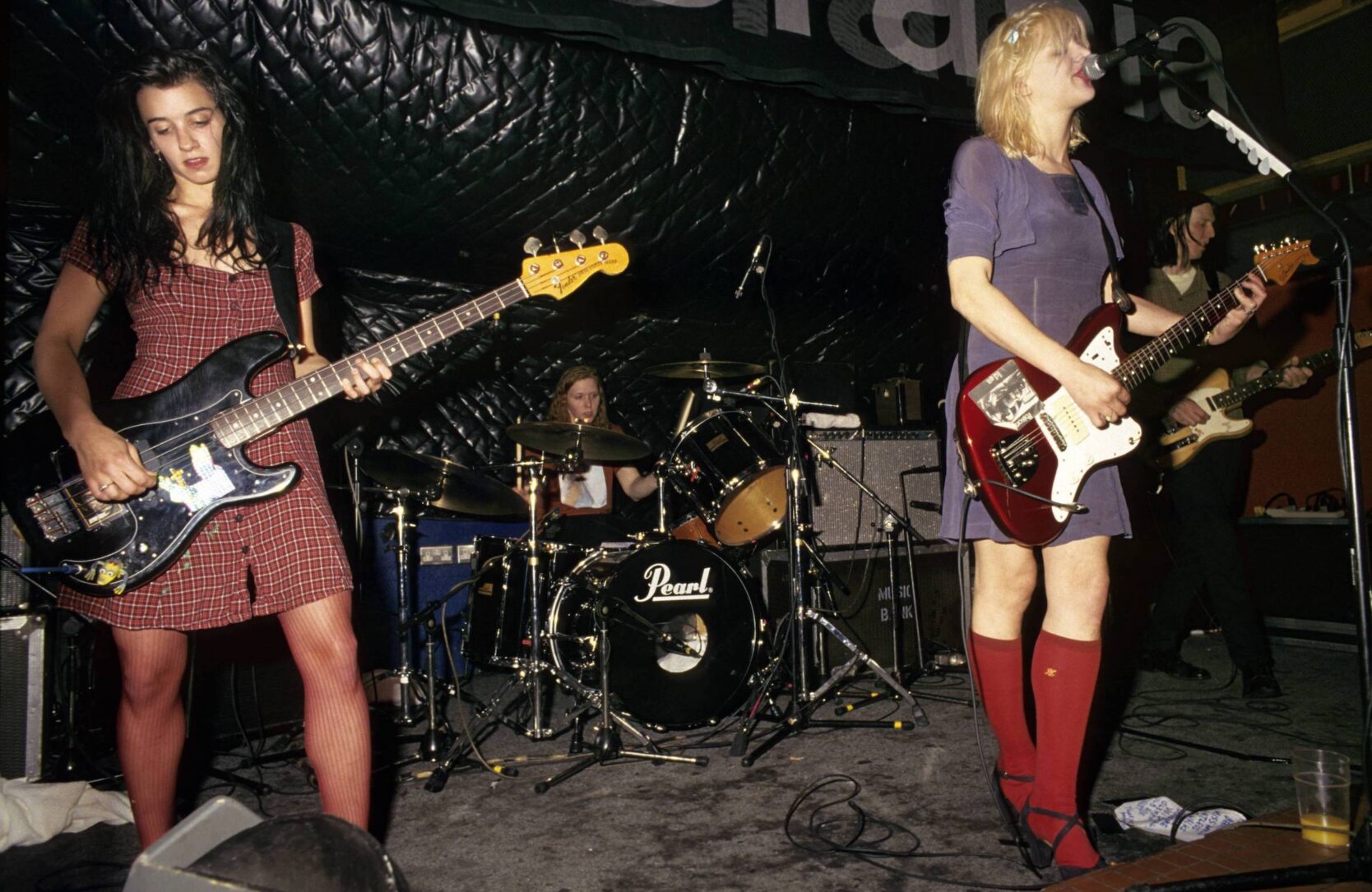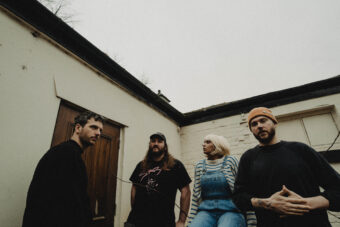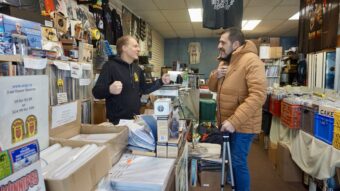Living (for some)—in all its grief and glory—is an act of spite against a hostile world.
Released April 12th, 1994, Hole’s now iconic album Live Through This is full of themes of grief, drug use, depression, and death, alongside survival, and a relentless poetic hope wielded like a threat. The album—both because of Courtney Love’s provocative and personal lyrics, as well as the band’s powerhouse sound—was a genre-defying and era-defining feat, going platinum and taking Hole and their music all over the world as they mourned the losses of Love’s husband, Kurt Cobain, and Hole bassist Kristen Pfaff.

Also Read
THE DAY THE MUSIC DIED
On its 30th anniversary, Live Through This continues to resonate, holding a special place in the hearts of queer and trans fans who connect to its soft rage, finding anthems that are beacons of hope, ways to process and survive. Queer people, after all, know too well the joys and perils of failed promises of subcultural revolution, dreams that our detractors will ache like we ache, and deep grief for those we have lost at the hands of fate, the state, and in critiques of a world on fire.
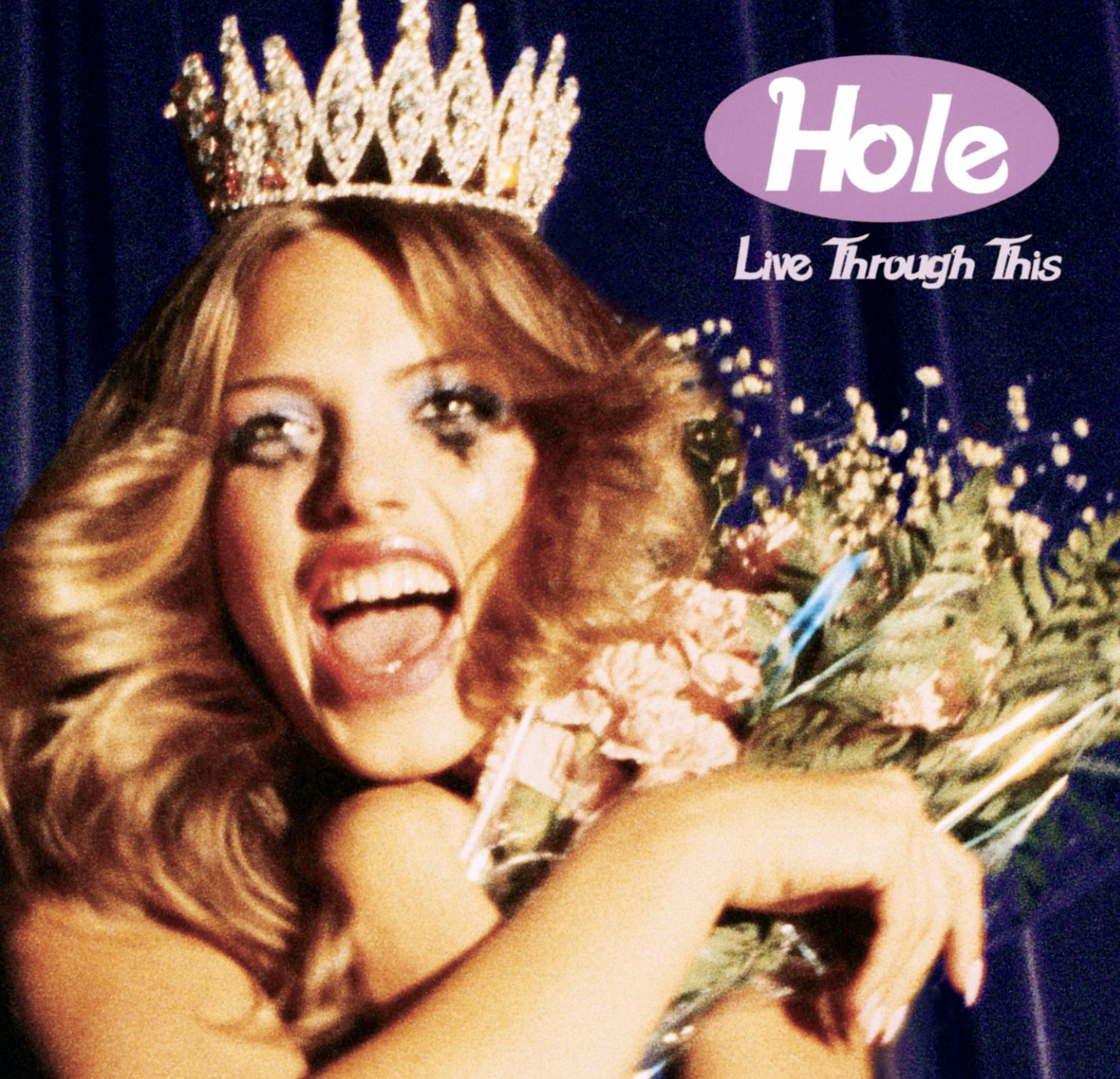
The album is more than queer-coded—it has queer lineages; its feeling, sounds, and themes were driven by queer punk drummer Patty Schemel’s beats and ability to amplify Courtney Love’s words and emotion like no other drummer could do.
“When you’re a kid and don’t feel like you belong and there’s someone saying they’re weird and have so much going on and they’re angry too, we spoke to everybody with that feeling,” Schemel told me, reflecting on how queer people have found a sense of empowerment in Hole’s music and lyrics. At readings of her memoir, Hit So Hard, fans often tell her the band’s music saved them.
When Schemel went into the studio, she had no idea that the album would become so successful. She wanted to prove herself as a drummer, and Hole wanted to prove themselves as a band, not just Kurt Cobain’s wife’s band.
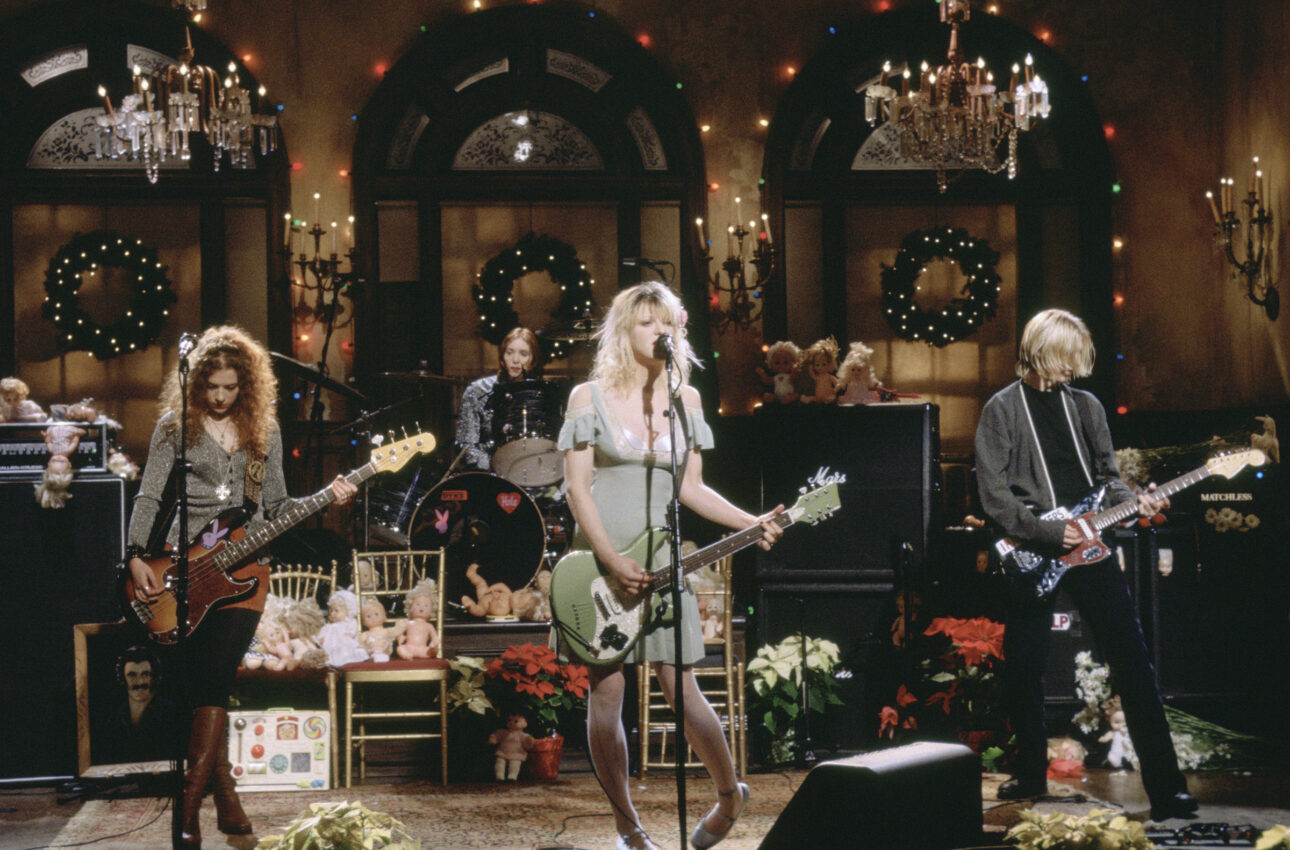
In August 1995, Schemel came out as a lesbian in Rolling Stone magazine while the band were promoting Live Through This, a move ahead of its time. She felt inspired by the active queer punk scene, specifically Phranc, Roddy Bottum of Faith No More, Rob Halford of Judas Priest, and zinester and bassist of Team Dresch, Donna Dresch.
“Once I came out, I was like, ‘I’m never gonna hide it again. I’m never gonna feel bad about being who I am.’ Kurt would say it was okay to be gay, just like he said in the Incesticide liner notes, and people listened to that. I didn’t want to hide and not share my true self, because up until I was 18 I felt horrible about being gay. Punk rock saved me. I found other people who were freaky like me. Playing drums, it was okay for me to consider coming out.”
Schemel’s drums are integral to the power of Live Through This. The songs were collectively written at rehearsals, where the band would work through ideas at length, finding what clicked. Love always had big stacks of lyrics, and guitarist Eric Erlandson would always record their rehearsals since Love had trouble remembering her parts. “Her guitar playing got kind of good,” Schemel remembered, “but she didn’t want to focus on that.”
Since Love always wanted to be wherever Cobain was, Schemel would often travel with the couple. Album rehearsals started at Jabberjaw in L.A. but happened mostly at the Hole rehearsal space in Seattle, and in a few out-of-town writing sessions: one in San Francisco at the Melvins’ rehearsal space and another in Rio De Janeiro, when Love and Schemel used Nirvana’s Rock in Rio rehearsal room to write “She Walks Over Me” along with fellow queer punk musician, Nirvana roadie, and ex-Exploited guitarist Big John Duncan who, according to Schemel, played bass and suggested ideas.
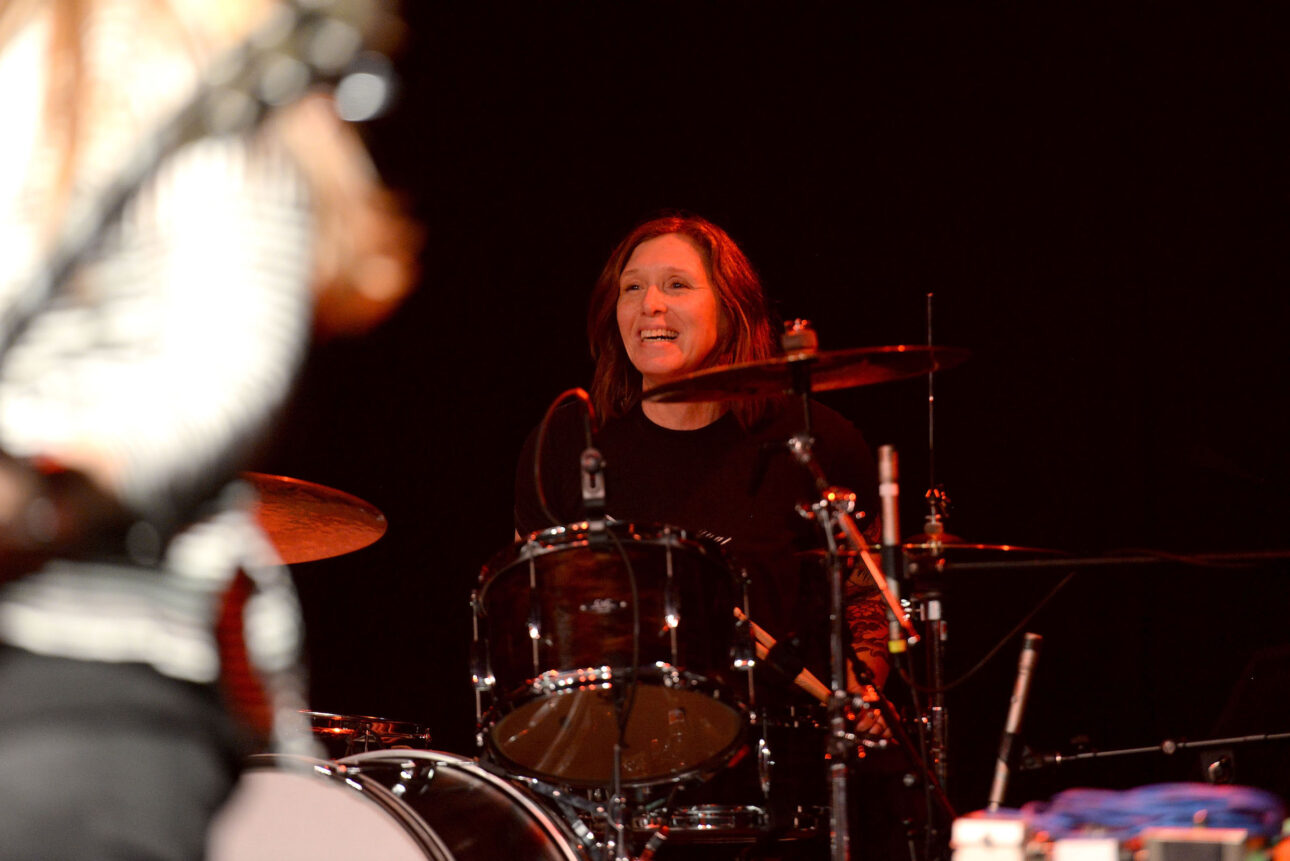
“When I joined the band, the songs started to become a little more shaped, with more layers and form,” Schemel remembered, remarking on how she and Pfaff became a foundation together. “She made me feel so supported. All of her ideas were really cool! For those quiet middle sections where Courtney wanted to do these pretty little REM [style] picking things, like the twinkly things on ‘I Think That I Would Die.’ Courtney always had to have the last word. [Laughs.] But I felt that we kind of became a new band.”
Live Through This was the first and last album the group with this specific lineup got to record together, due to the untimely passing of Pfaff in June 1994—just two months after the album was released.
Hole recorded Live Through This at Triclops Sound in Marietta, Georgia, recommended to them by the Smashing Pumpkins, who had just wrapped up sessions for Siamese Dream. Hole was welcomed to the studio by a fax from Amy Ray, inviting the band to hang out. “Courtney was like, ‘Patty, I think this fax must be for you! It’s the Indigo Girls!’ And I was like, ‘Of course it is.’” According to Schemel, Love was constantly checking the fax machine for messages from Cobain. Unfortunately, due to a busy recording schedule, they never got to meet up with the Indigo Girls, but they did fly to New York to see Nirvana on Saturday Night Live.
The bass and drum tracks were recorded live and without a click track, something that gives the album a human feel. According to Schemel, Pfaff did everything in one take. “That wasn’t my case at all,” Shemel recalled, laughing. “I remember ‘Jennifer’s Body’ being one of my favorites. I got it on the second take. There were always parts in a song that I’d get to—a lot of them were written not long before we went into the studio. ‘Asking For It’ was written in the studio. I can’t record without the vocal [track]—those parts, that urgency and feeling, like, ‘Is this gonna go off the rails at any second?’ I needed that energy.”
Schemel’s instinct as a collaborator reflects her queer-punk style: listening to everyone, adding dynamics to make parts different, finding ways to create musical drum hooks that she builds off of. Schemel makes bars of four feel like three, and brings the emotion and intensity of each song into focus through feeling on drums. Her snare side-stick is just as iconic a part of “Violet” as Erlandson’s opening riff, which, as Schemel tells me, was inspired by Bauhaus’ “Bela Lugosi’s Dead.” She was also inspired by fellow lesbian rock drummer Alice De Buhr of the band Fanny’s musical, rudiment-inflected playing on “Back Alley” when writing her part for “Olympia.”
These dynamics, along with Courtney Love’s lyrics and vocal style, are a big part of what stood out to artist and musician Jasmine Nyende. Although she was just a newborn when the album was released, it’s become a touchstone for her, an integral part of the sonic landscape of her life.
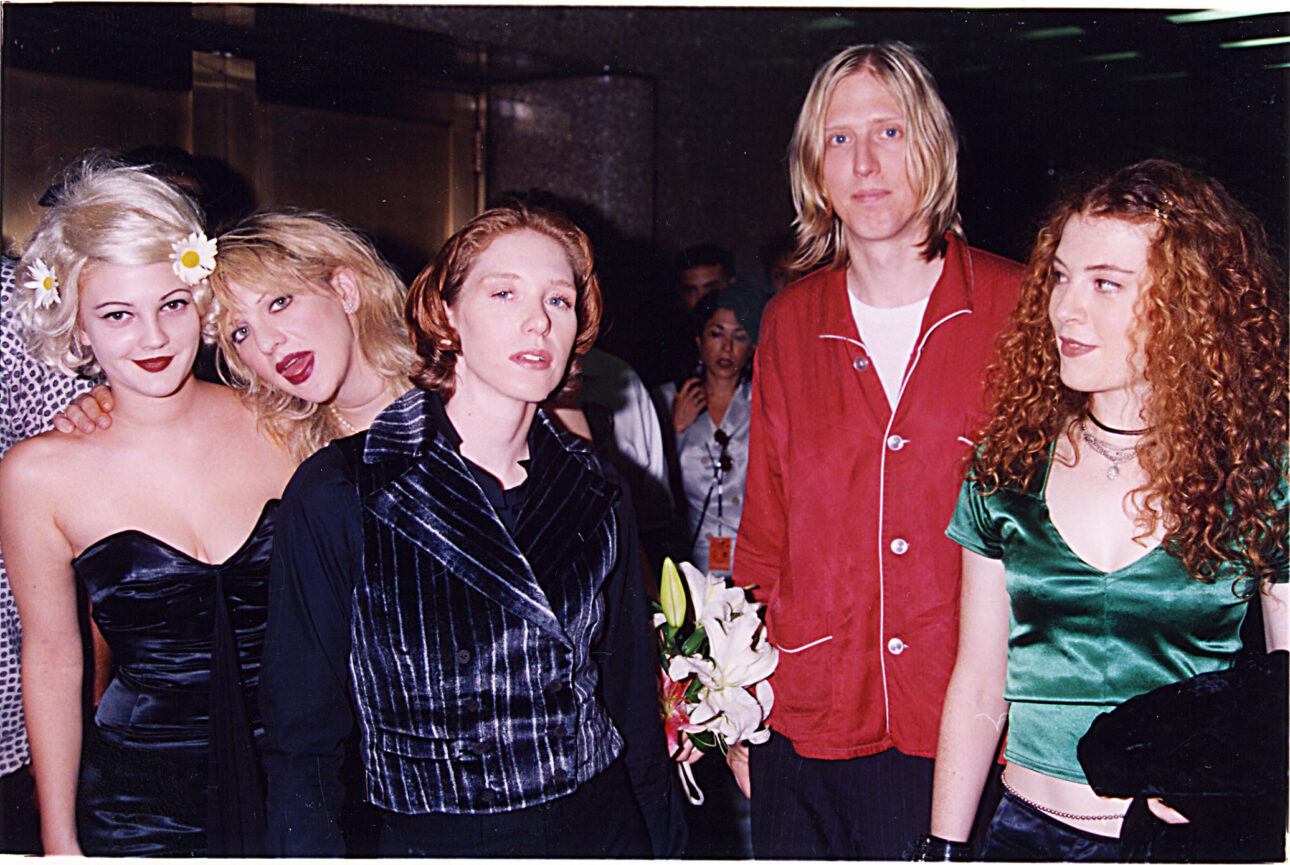
Born and raised in Los Angeles, Nyende relocated to Portland, Oregon for college, a decision she made in part because of the punk and alternative music that had such a “deep sense of connection to place.”
As an undergrad, Live Through This became an important part of how Nyende connected to the environment, her classmates, the city, and the local scene. Like many queer, angsty young adults, Nyende spent countless nights finding connection in driving around with friends, looking up at big trees, smoking, and sing-screaming along to the album. She met friends through listening to it and felt like it helped her experience the Pacific Northwest in unique ways. She visited Mary’s Strip Club and Olympia because of their connections to Hole. “It opened up a connection I could have to this place, even though I was just 18 and in college,” she remembered. “I got to feel myself be a part of a culture there.”
Live Through This continued to inspire Nyende after college. At a No Sesso wrap party celebrating an important win in the fashion industry for the brand that focuses on streetwear, glamour, and Black womanhood, she chose to karaoke “Violet,” an act that would introduce her to her future bandmate Uhuru Moor, who also modeled in the show. “That song and the album meant so much to me that I knew I could belt it and feel confident in it. After that, Uhuru came over and was like, ‘Do you want to start a band? We should start a band!’” The two went on to found the legendary L.A. punk group Fuck U Pay Us, a band whose message of Black liberation and reparations is as urgent today as it was nearly a decade ago.
The way Love brought together the performative element of being a woman, combined with being rebellious through the voice, is something Nyende connected to. If you listen to early FUPU songs, you can hear the ways she is inspired by Love and plays with moving from the “high to the low, to the scream to the singing,” she tells me. “Even today, when I was really listening to the album, I was struck by the vibrato of it, the elasticity of it, and the way the guitar would lead in. It just felt so cohesive, I still get that same feeling of excitement just listening to it.”
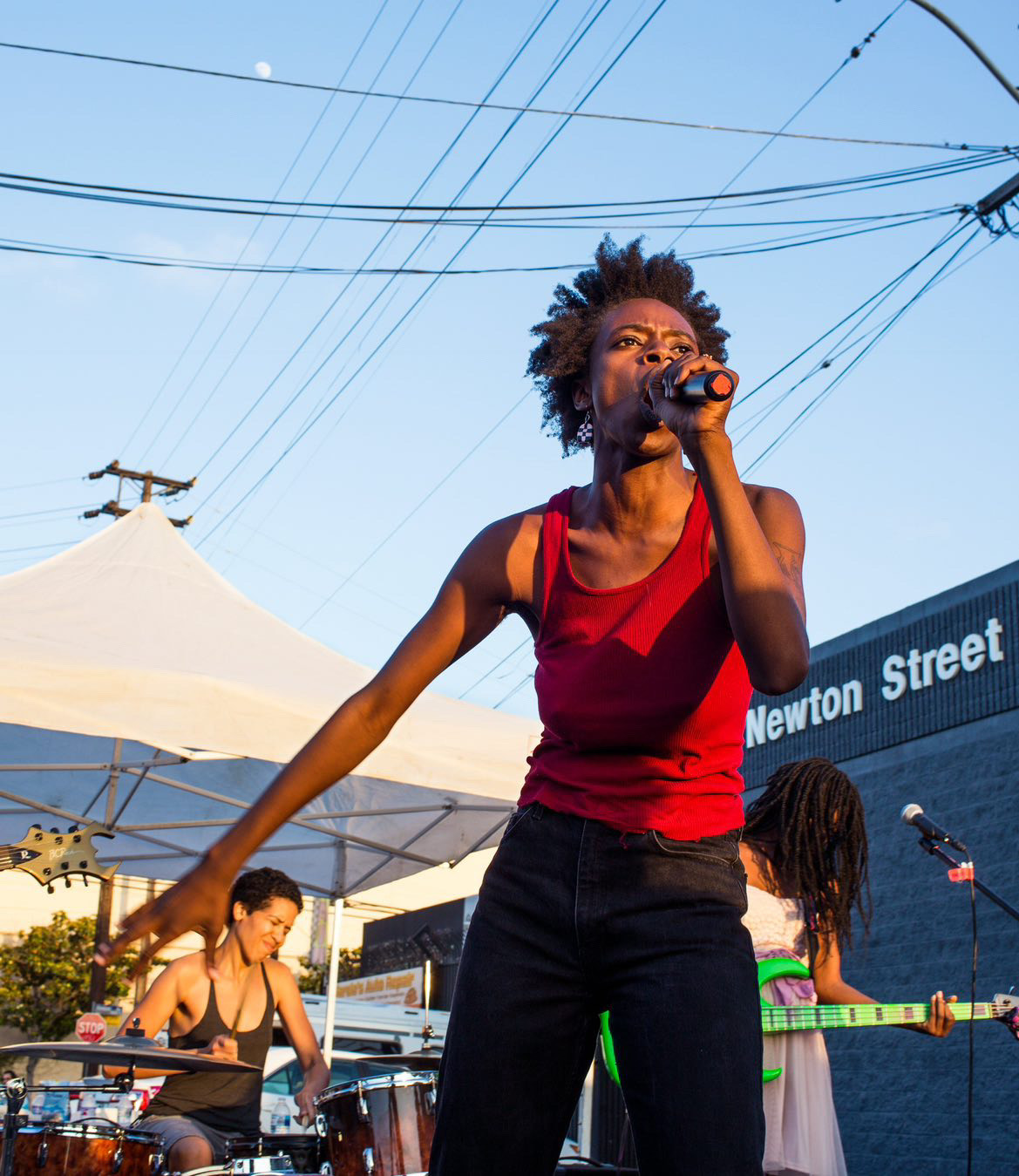
We spoke on the morning of the recent eclipse, something we both found to be profound, given that the album opens with an acknowledgement of an amethyst sky. “It feels like an album that I can time-travel with,” she says. “The poeticism makes it long-lasting because of just how rich it is. It has a timeless nature.”
Nyende is among a group of queer and trans artists who continue to be moved by this album, honoring it in their work. Trans punk cyborg poet Andrea Abi-Karam cites the record in their latest book, Villany, in an anti-carceral fantasy about fucking against a dumpster, and artist Mikki Yamashiro recently added a Hole sweater vest to her arsenal of fiber art inspired by aliens, cartoons, treasure trolls, and other icons from the dyke imaginary.
Nyende will always honor Live Through This for the ways that she’s been able to express through it and cry with it. “It’s that album, and punk music, that helped me feel comfortable in these new spaces and start my own lineage as a punk musician and as a person.”
For Schemel, Live Through This was the beginning of a big part of her lineage too.
“I knew I wanted to be a drummer, and I wanted to be in a rock band, and through Live Through This that dream came true. I was an artist! And it was okay to be gay, and I didn’t care. It felt good because I was in this band, and we were saying ‘fuck you.’ I took the chance because our band stood for this big ‘fuck you.’ If you don’t like it, well … we’re not gonna punch you, but … you’re just not cool.”

